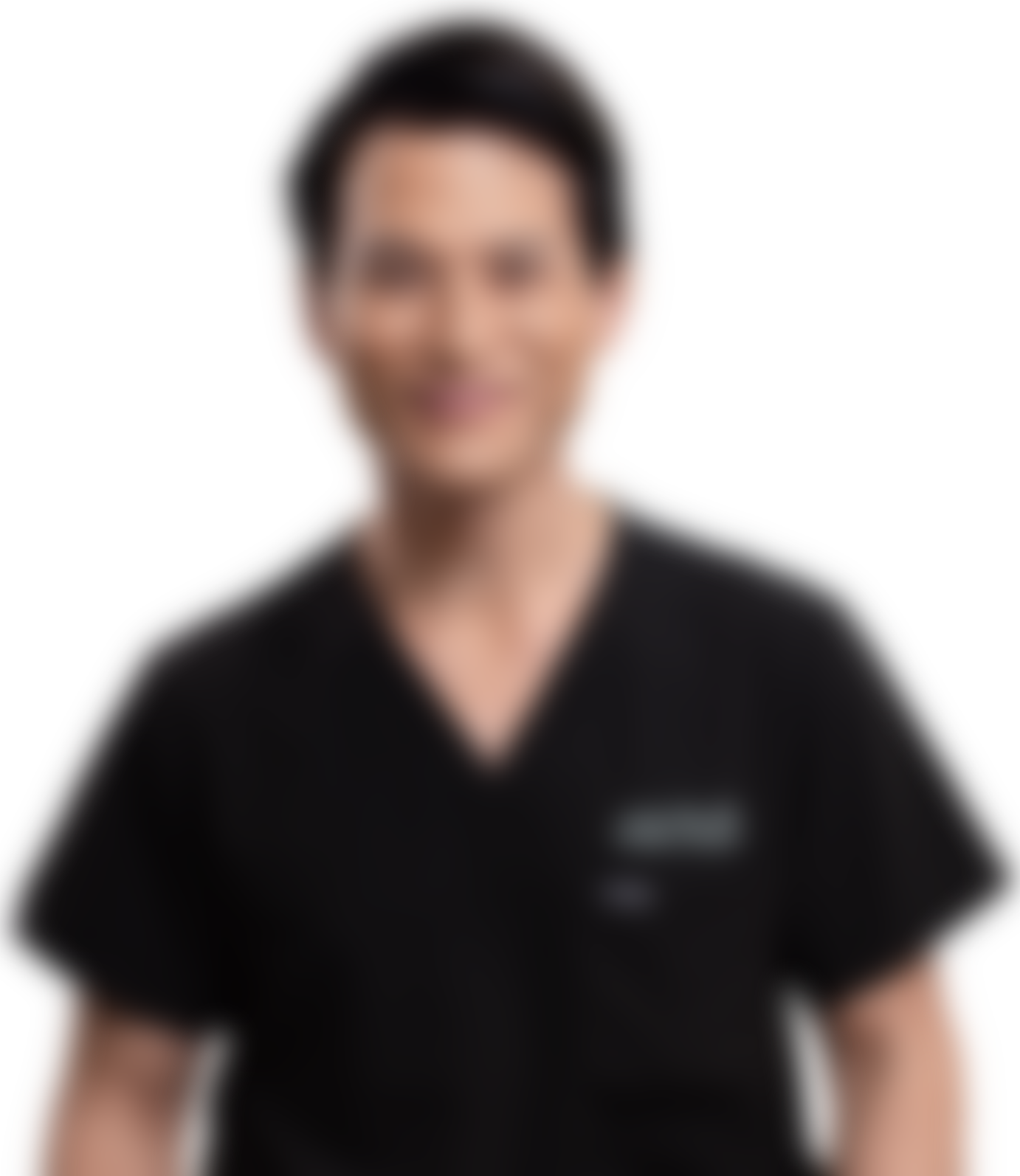What to Expect After a Tummy Tuck
UpdatedGetting a tummy tuck, or any surgery for that matter, includes a recovery period. If you're like most people who are considering tummy tuck surgery, you may be a little worried about the recovery experience. You will probably have a lot of questions going through your mind, like:
- Is it painful?
- How long will it take to get back to normal?
- Will I be miserable the whole time, or is it not that bad?
- How do I take care of my kids?
While everyone is different, and each patient will have his or her own recovery story, this article will explore the general tummy tuck recovery timeline. This way, you can get an idea of what to expect after your tummy tuck surgery.
What Is a Tummy Tuck Recovery Like?
Women who chose to have a tummy tuck are amongst our happiest patients. The stretch marks, loose skin, and "pouch" are removed, leaving a flat and firm tummy. There are two main tradeoffs for getting a flat tummy: (1) a bikini line scar; and (2) the recovery.
A tummy tuck is a real operation with a real recovery. Anybody who tries to sugarcoat this is not telling you the truth. The recovery time from a tummy tuck is generally one to four weeks.
You should be prepared to experience swelling, bruising, numbness, tingling, tightness, moderate pain, and limited strength and moblility. The first week is often the toughest. You may even wonder if you made the right decision to get a tummy tuck. Rest assured, your body will heal itself, and you will get better. Once you get through the healing period, most patients are thrilled with their results and their decision to have the procedure. In fact, most women tell us they wish they hadn't waited so long to get their tummy tuck!
Your choice of a plastic surgeon can be an important factor as a better surgeon can perform a more skilled operation that leads to less trauma and a faster recovery. But your emotional state also plays a large role in your recovery. If you have a positive spirit and confidence in your decision to have a tummy tuck, your recovery will go smoother than if you are overly anxious or worried.
The Tummy Tuck Recovery Timeline
Whether you have a tummy tuck as a way to regain your pre-pregnancy body or further enhance your curves following massive weight loss, this is a general post-op timeline you can expect to experience.
Immediately After a Tummy Tuck
When you first wake up in the recovery room after surgery, you expect to feel sore and tight due to the muscle tightening and large amount of skin that has been removed. You will be given medicines to help alleviate any discomfort.
Most patients can be discharged home on the same day as surgery. Other patients may be required to have their surgery performed in the hospital and to stay overnight, depending on your overall health and the extent of surgery.
Once you are discharged, you will need a friend or family member to drive you home and help you get settled. A responsible adult or caretake must stay with you for the first 24 hours after surgery to monitor your well being and provide assistance. You can help expedite your recovery by preparing in advance for your return home after surgery.
Your surgeon will give you detailed postoperative instructions regarding activity, diet, wound care, dressings, hygiene, and medications. You should be prepared to rest after surgery so you can heal. It is important not to overdo it and not to put a strain on your body or your incisions. Be sure to follow your surgeon's instructions to the letter. Doing so will help you along to a quicker and healthier recovery and better results.
The First Week
For most patients, the first week is often the toughest. You will feel sore and tight. You will be prescribed medicines to help alleviate discomfort and facilitate your healing and recovery.
You may face some discomfort and frustration performing mundane tasks, such as using the restroom. You will feel better as each day passes.
Here are some things you will need to know about the first week of recovery:
Rest: Rest is important during the early stages of healing. However, it is equally important that you are ambulatory every 3-4 hours to improve circulation during the first week after surgery. Use assistance if needed, and use caution.
Positioning After Surgery and Sleeping: The position after surgery should be lying on your back with your head slightly elevated at a 30-45 degree angle for 48 hours after surgery. You should place one of two pillows under the knees to flex the hips slightly ("beach chair position"). This position will enhance your comfort and keep pressure off the abdominal tissues and muscles, which will accelerate healing. Most patients find a recliner most comfortable. Alternatively, a wedge pillow placed behind your back can help elevate the head for sustained periods of time.
Fluids: Drink plenty of fluids. It is easy to become dehydrated after surgery. Dehydration may cause nausea, dizziness, and constipation.
Diet: Your first meal after anesthesia should be light, such as soup, crackers, jello, and applesauce. You should progress to a normal diet including adequate protein and nutrients, as tolerated. It's best to stick with a low-sodium diet to help reduce swelling and fluid retention, which is common post-op. You should refrain from drinking alcohol for at least the first week and also while taking any prescription medications as it dilates blood vessels and may cause unwanted bleeding. If constipation is a problem, you should consider taking an over-the-counter or prescription stool softener to reduce abdominal straining.
Medications: You should take all medications as prescribed by your surgeon. If you experience pain, you should take your prescribed pain medication as directed. Painkillers should be taken with food to prevent nausea. Painkillers are typically needed for one to three weeks after surgery. With antibiotics, take the full prescription to prevent infection and accelerate healing. Following your doctor's orders are essential. For timed medications, set alarms on your phone to use as reminders. If before surgery you regularly taking any prescription medicines including blood thinners, contact your surgeon for instructions and guidance as to when to resume taking these medicines.
Dressings and Wound Care: You may be discharged home with dressings in place. You should keep all of your dressings and wounds clean, dry, and intact. Your surgeon will provide special instructions on how to do this correctly.
Drains: Small drain tubes may be left in place after surgery to facilitate healing. You will be instructed to empty the drainage tubes at least twice or thrice a day. Your surgeon will provide detailed instructions you can follow, so don't stress about it.
Garment: You may be discharged home wearing a garment. The garment is designed to support the surgical sites, which will facilitate healing and reduce swelling and discomfort.
During the first week, it is important not to remove the compression garments unless instructed by your surgeon. These garments are worn to help diminish the accumulation of fluids around the surgical site. Think of them as your anti-swelling secret weapon!
You should continue to wear the garment for at least 23 hours per day for at least six weeks after surgery or as instructed by your surgeon.
Hygiene: Most patients can take a shower 48-72 hours after their surgery. You will want to ask your surgeon, and you may feel like waiting longer. It's important to secure the drainage tubes and be very gentle with the incision site. Most patients choose to sit in a chair while showering, which lessens the strain on their stomach muscles. You should refrain from soaking in a bathtub, hot tub, or swimming for 4 weeks.
Physical Activity: Early ambulation as instructed above is critical. Avoid excessive walking prolonged standing, or lifting for the first week following surgery. Move in a way that is comfortable for you. You will probably feel more comfortable walking in a bent-over "little old lady" position for the first week.
Restricted Activities: Any form of exercise, smoking, alcohol or nicotine consumption, driving, or household chores should be avoided completely. Most patients schedule help from friends or family to take care of any household chores or babysitting duties. You don't need to handle any of those responsibilities until your doctor clears you to continue physical activity.
The Second and Third Week
Most women start to feel better during the second week, but you're still not entirely ready to return to life as normal. Don't get too ambitious, regardless of how good you feel. Only do as much as your surgeon advises you to do, and no more.
Physical Activity: If you're already comfortable, you can probably start moving around several times a day with light chores or, at least, get some sun outside. Be careful not to expose the incision site to the sun, though.
Generally, it is best to move at least four times a day to prevent blood clot formation in the legs as well as get those muscles moving. Also, do not try to force yourself to stand up straight yet unless it feels comfortable.
Pain Medications: This is the time to start tapering away your pain medications. While pain is subjective, it is best not to rely too much on painkillers. If you feel up to it, take your pain medications as needed instead of on a schedule.
Restricted Activities: Any form of exercise, smoking, alcohol consumption, driving, or household chores.
Week Four and Beyond
By this time, most feel pretty good. You can start being more active and easing yourself back into your normal routine. Still, remember you just had surgery - if your body disagrees, listen and take it easy.
Physical Activity: If possible, you can start with gentle exercises such as light stretching. Although your energy level can be back to normal around this time, moderate to heavy exercises should still be avoided. You may be able to return to work if it is not physically demanding.
You will need to refrain from lifting more than 20 pounds for about six weeks.
How Long Before I Feel Normal?
Most patients resume their normal activities after the fourth week. Every patient is different, though, so it's best to recover at your own pace rather than trying to force yourself to duplicate someone else's recovery timeline.
Your recovery time will vary depending on your age, genetics, skin quality, the tummy tuck technique, and the skill of the surgeon.
Have a look at our tummy tuck before and after photo gallery.
Additional Helpful Notes:
- Patients with darker skin tones are more prone to noticeable scarring. Get in touch with anyone from our helpful team for recommendations on how to prevent scarring.
- Post-surgery blues are quite normal. Incision appearance, plus swelling and pain, can lead to an emotional roller coaster. Remind yourself that this is part of the process. Do not hesitate to get in touch with us during recovery!
- Instead of tight-fitting bikinis, purchase a pack of cotton panties that are two or three sizes bigger than you normally wear. This will help the incision site "breathe" and avoid constriction, which could lead to delayed healing.
Preparation for a tummy tuck doesn't just involve planning ahead for the procedure; it also entails devising a safe and comfortable recovery plan. We're more than happy to answer those tummy tuck recovery questions!
We recommend going ahead andscheduling a consultation with your plastic surgeon. They will be able to give you better answers based on your desired results, along with your physical makeup. You can also take our free online self-assessment to see if you are a good candidate for a tummy tuck.







